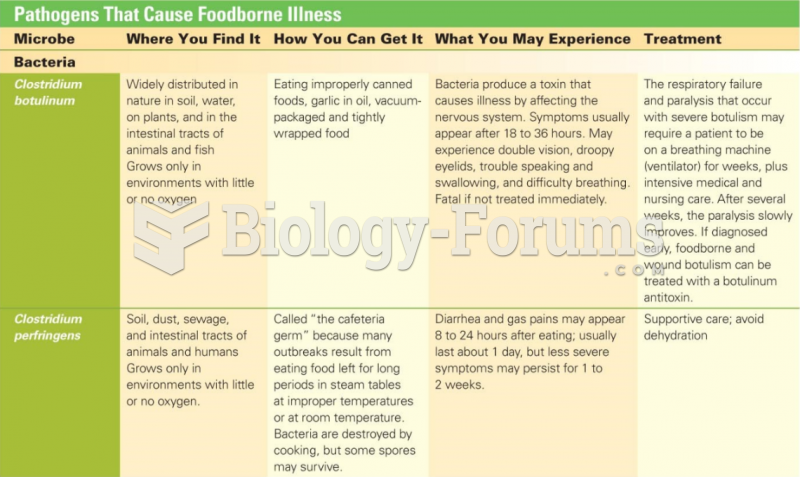|
|
|
Acetaminophen (Tylenol) in overdose can seriously damage the liver. It should never be taken by people who use alcohol heavily; it can result in severe liver damage and even a condition requiring a liver transplant.
Acetaminophen (Tylenol) in overdose can seriously damage the liver. It should never be taken by people who use alcohol heavily; it can result in severe liver damage and even a condition requiring a liver transplant.
People with alcoholism are at a much greater risk of malnutrition than are other people and usually exhibit low levels of most vitamins (especially folic acid). This is because alcohol often takes the place of 50% of their daily intake of calories, with little nutritional value contained in it.
This year, an estimated 1.4 million Americans will have a new or recurrent heart attack.
The average person is easily confused by the terms pharmaceutics and pharmacology, thinking they are one and the same. Whereas pharmaceutics is the science of preparing and dispensing drugs (otherwise known as the science of pharmacy), pharmacology is the study of medications.
 Organisms exhibit a diversity of behaviours, which include (clockwise from upper left), foraging and
Organisms exhibit a diversity of behaviours, which include (clockwise from upper left), foraging and
 Erythroblastosis fetalis. (a) The condition occurs with an RH+ father and RH– mother. (b) First preg
Erythroblastosis fetalis. (a) The condition occurs with an RH+ father and RH– mother. (b) First preg





